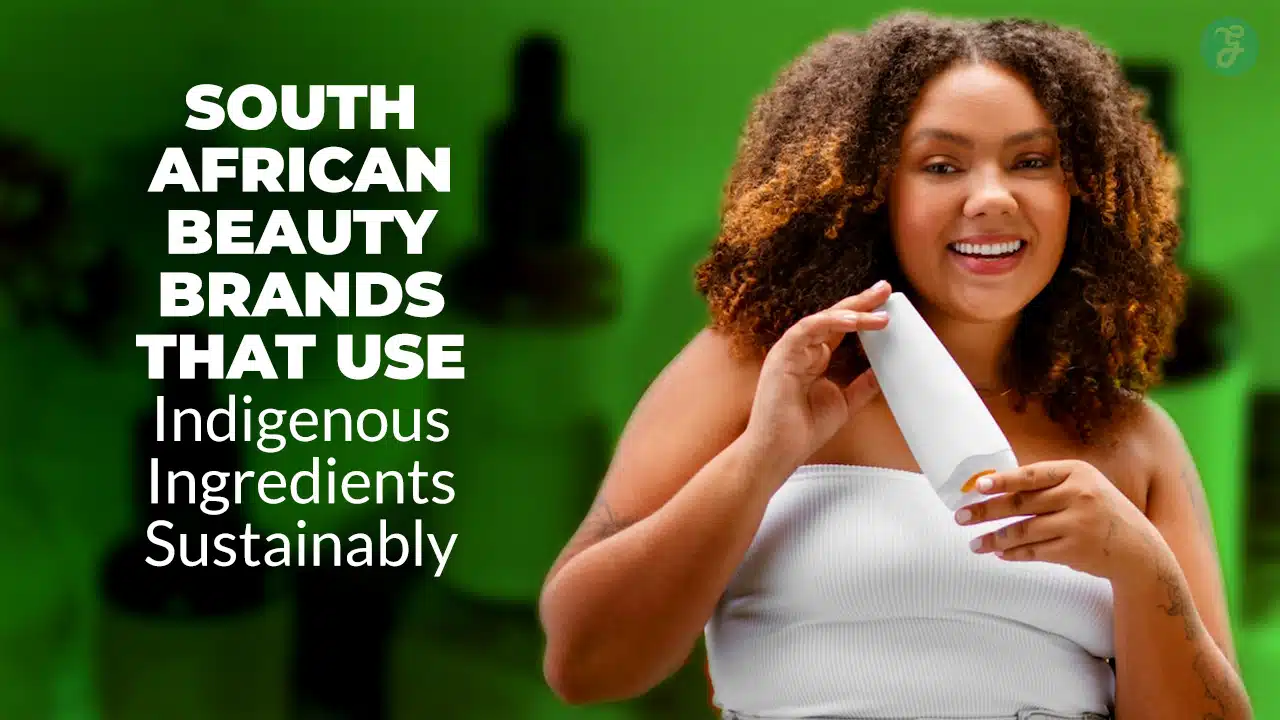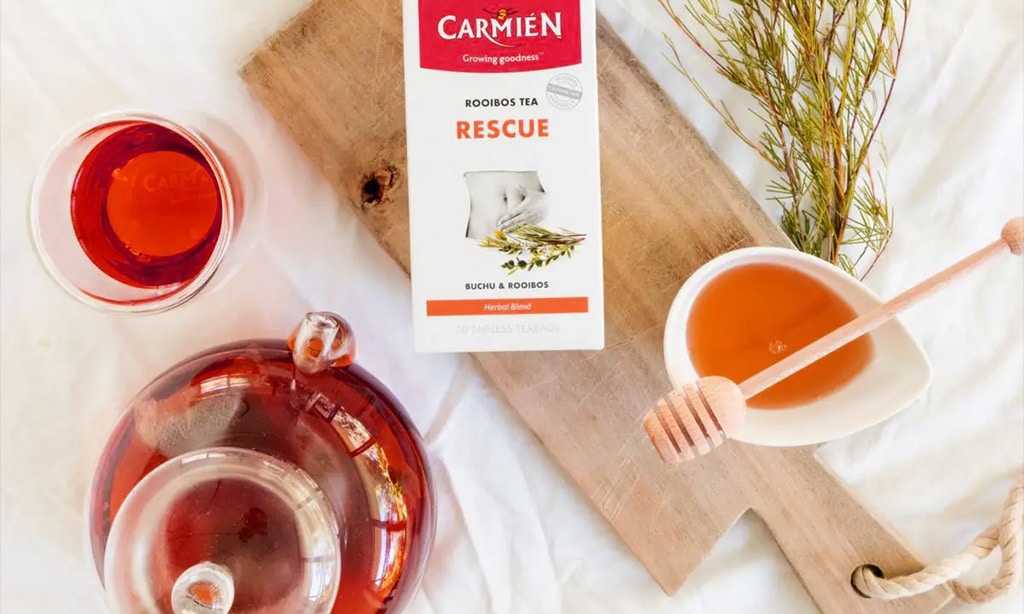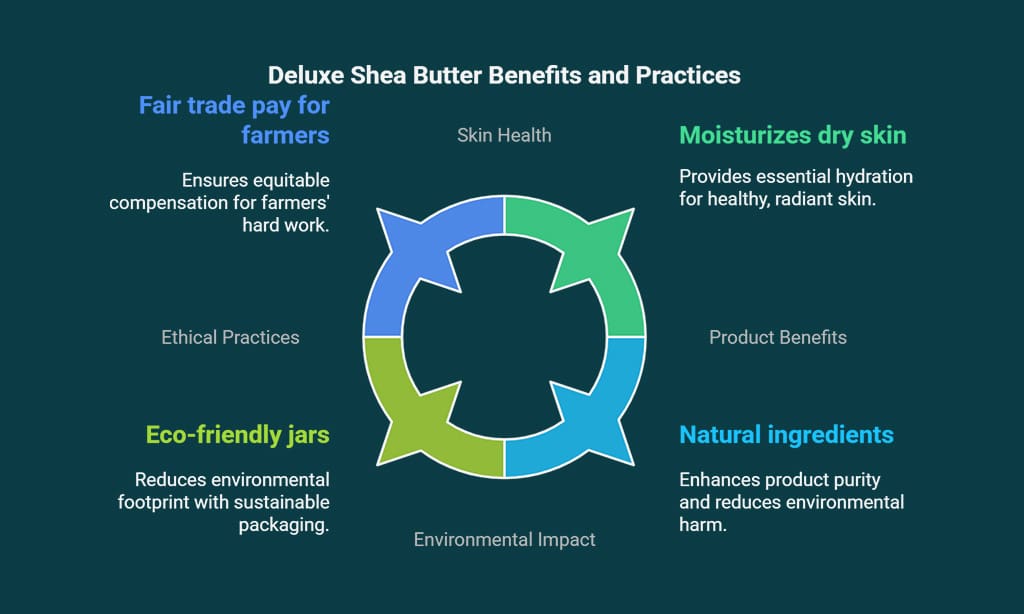Many creams leave skin dry and red. You worry about itch and scars. You want skin care that heals with pure plants.
South Africa holds many healing herbs. South African Beauty Brands That Use Indigenous Ingredients pick marula oil for anti-inflammatory properties, baobab oil for vitamin C and aloe ferox for skin repair.
We will list 7 brands and show how they use shea butter and Kalahari melon seed oil to boost skin hydration and radiant skin. Read on.
Key Takeaways
- Seven local brands such as Skoon, Afari, and Pure Beginnings use rooibos, buchu, marula, baobab, aloe ferox, shea, and Kalahari melon oils. These oils nourish and heal skin.
- Skoon works with Western Cape farmers to hand‑harvest rooibos and buchu. It cold‑presses the herbs to lock in vitamin C and antioxidants.
- Afari funds fair‑trade pickers in Limpopo who hand‑pulp marula fruit. They blend the oil with bulbine frutescens juice to calm acne and fade fine lines.
- Pure Beginnings sources baobab through Phytotrade Africa to add vitamins C and A for baby skin. Deluxe Shea meets USDA Organic and Fair Trade standards at $9.95 per jar.
- Back 2 Nature and African Extracts infuse aloe ferox and rooibos into creams, cleansers, and SPF15 lotions. These vegan, cruelty‑free products soothe sunburn, acne, eczema, and boost hydration.
Skoon – Harnessing the Power of Rooibos and Buchu
Skoon crafts gentle facial cleanser and skin creams with Aspalathus linearis and Agathosma betulina extracts. Thandi Mbulaheni leads this brand from south africa into sustainable skincare.
The red bush infusion loads formulas with antioxidants that scavenge free radicals. It protects skin from aging, and it boosts collagen. Buchu oil offers strong anti-inflammatory, antibacterial, and antifungal action.
It soothes eczema and eases acne.
Farmers hand-harvest herbs on Western Cape slopes. Skoon uses cold-press extraction to lock in vitamin C and healing properties. This process yields a pH-balanced concentrate that suits sensitive skin.
Ethical sourcing supports local growers and cuts carbon footprints. Creams also feature a dash of adansonia digitata oil for deep hydration and a radiant finish.
Afari – Featuring Marula Oil as a Hero Ingredient
Afari puts marula oil front and center. This elixir brims with vitamins C and A, and it fights free radicals. People see fine lines fade as the oil sinks deep. It stops stretch marks, and it calms acne-prone skin with anti-inflammatory properties.
Fair trade pickers handpulp the fruit in Limpopo Province. Each purchase funds women artisans in remote hamlets. The brand mixes modern labs with age-old African beauty secrets to craft a radiant skin moisturiser.
Bulbine frutescens leaf juice rounds out each serum. This succulent extract needs no irrigation, so it suits low-impact farms. Marula oil and this gel unite to lock in skin hydration and soothe irritation.
The line spans a shaving balm, a light body oil, plus an emollient shampoo bar. Ethical sourcing and natural ingredients drive every step here, and Afari gains respect from beauty fans.
Customers love how fast the remedy absorbs, leaving no greasy trace.
Kalahari – Utilizing Kalahari Melon Seed Oil for Hydration
Cold-press extraction turns kalahari melon seed oil into a rich blend of linoleic acid and vitamin E, it leaves a light, non‑irritant texture on sensitive skin. This emulsion calms red patches, fights free radicals, and boosts skin hydration in beauty tonics and lotions.
Drought‑resistant melon vines thrive in arid plains, they sip just a drop of water each season. Local harvesters crack seeds by hand, they earn steady income while they boost rural livelihoods.
Brands add this oil to natural cosmetics and personal care products, they tout its anti‑inflammatory properties and soothing benefits for acne treatment. This method ties sustainable skincare to real community support.
Pure Beginnings – Incorporating Baobab Extract for Nourishment
Pure Beginnings taps baobab oil to feed infant’s skin. Its nutrient profile shines with vitamin C, vitamin A, calcium, iron, potassium, magnesium. Antioxidant power fights free radicals like a shield.
Moisture clings to soft skin, it boosts skin hydration and cuts dryness. The extract works as a prebiotic, it boosts the skin’s good bacteria.
This South African line sources baobab through Phytotrade Africa. The gentle extraction process serves sustainable skincare and fair trade. Baby knuckles feel silky, moms praise the healing properties.
A mom marvels, “His cheeks look radiant.” Products use natural cosmetics, not harsh chemicals. Sensitive skin finds calm, it glows with health.
Back 2 Nature – Aloe Ferox as a Key Ingredient for Skin Repair
Back 2 Nature packs aloe ferox mucilage into a light cream. They use ethanol extraction to pull aloin and amino acids. Lab tests with liquid chromatography confirm vitamins A, C, B12.
The team favors natural ingredients over synthetic fillers. This blend soothes sunburn fast. It calms irritation on sensitive skin. Skin feels more elastic after each use. The mix fades dark spots in two weeks.
Wild harvest crews supply fresh leaf.
This formula delivers acne treatment with soothing precision. It eases eczema and dermatitis flares. The cream taps anti-inflammatory properties to cut redness. A free-radical scavenger barrier shields cells.
Users gain lasting skin hydration. Fans praise its sustainable skincare routine. The blend pairs well with marula oil. Many report a soft glow by day three.
Deluxe Shea – Promoting Ethical Shea Butter Production
Deluxe Shea sells pure, organic shea butter. Its unrefined mix holds vitamin A, vitamin C, and fatty acids. This blend moisturizes dry, sensitive skin and eases fine lines. Each jar starts at $9.95.
Farmers receive fair trade pay for each nut harvest. The brand funds clean water in rural West Africa.
The product meets USDA Organic and Fair Trade Federation standards. It skips additives and relies on natural ingredients. Third-party labs verify purity. Users see radiant skin and less dryness.
Eco-friendly jars fit any sustainable skincare shelf. You can blend it with aloe vera or mongongo oil for acne treatment or healing properties. This butter shines in natural cosmetics collections.
Luxe Botanics – Featuring Marula and Kalahari Melon Oil
A mix of Marula oil from Kenya and Kalahari melon oil gives skin a silky touch, rich in vitamins A and E. Green chemistry techniques cut solvent use and boost purity. Local farmers gather seeds in ecofriendly plans, and they earn fair pay each season.
A Buy1Give1 policy funds school kits and health checkups for women and children across Africa.
Marula oil hums with anti-inflammatory properties that calm irritation fast. Kalahari melon oil locks in moisture, leaving no greasy film, just radiant skin. Luxe Botanics blends natural ingredients with science and heritage, feeding a craving for sustainable skincare.
African Extracts – Rooibos as a Skin Savior
Bio-Active Rooibos extract packs a punch. It feels like a tall glass of water for dry skin. Its antioxidants calm red patches fast, and it treats sensitive skin with ease. African Extracts ships cruelty-free, organic, vegan containers from South Africa.
The hydrating creamy cleanser lathers up like silk. A scoop of exfoliating face scrub sweeps away dead cells without pain. The misting toner gives a cool burst of moisture anytime.
Each batch shows ethical sourcing and fuels sustainable skincare goals.
Moisturizing Day Cream with SPF15 bars sun rays with a natural sunscreen shield, while it locks in moisture. The formula steers clear of harsh additives and fights inflammation with antioxidants and vitamin C.
Plush Nourishing Night Cream costs just $8.99 for 75 ml, so you can rest easy. It heals like a soft blanket, and it helps with acne treatment and itchy scalp spots too. You can layer both creams on thirsty skin before and after sun play.
Takeaways
Seven local labels bring wild aloe, red bush extract, and desert melon oil into your skincare routine. They cut out harsh chemicals and pack daily serums and gentle moisturizers with vitamin C and soothing botanicals.
You feel the healing touch of monkey bread oil and karite fat on every layer. These brands prove that true beauty grows from earth, not a factory. Try a new cleanser or sunscreen blend, and watch your skin glow, tone, and heal, all while you support ethical sourcing.
FAQs on South African Beauty Brands That Use Indigenous Ingredients Sustainably
1. What natural ingredients help hydrate and soften skin?
South African brands use tree seed oil, plant butter and nut oil to nourish and support skin hydration. They mix desert melon oil and aloe vera for soothing properties on sensitive skin. The result: radiant skin that feels plump, not tight.
2. How do they calm redness or fight breakouts?
They turn to desert aloe and classic aloe vera for anti-inflammatory properties. They pack their serums with plant butter for healing properties. You might spot fewer blemishes, more glow. It is like a cool breeze for angry skin.
3. Can these creams help with stretch marks or aging?
Yes, they infuse vitamin c and vitamin a to boost collagen. They tackle stretch marks, and fade fine lines. Their natural skin care formulas draw from traditional recipes, and deliver radiant skin.
4. Are these beauty products truly eco-friendly and ethical?
They use natural ingredients, craft natural cosmetics, follow ethical sourcing, and back sustainable skincare. They cut waste, recycle packaging parts. For them, every step counts in protecting our planet.
5. Beyond creams and lotions, what else do these brands offer?
You will find sunscreens, k-beauty style masks, face serums packed with African fruit oil, even a berry beverage. They blend science and tradition, crafting beauty products with a South Africa twist.







































